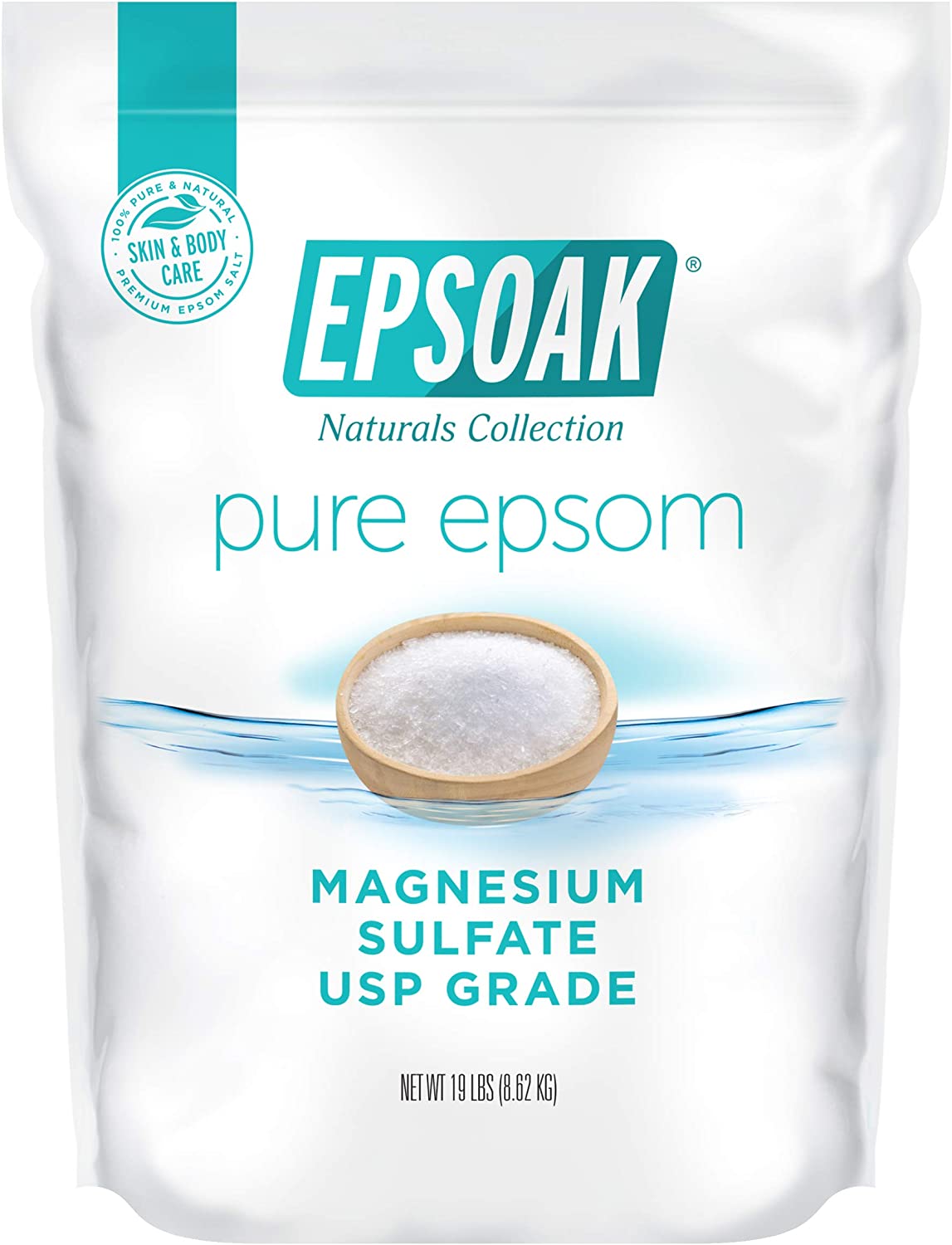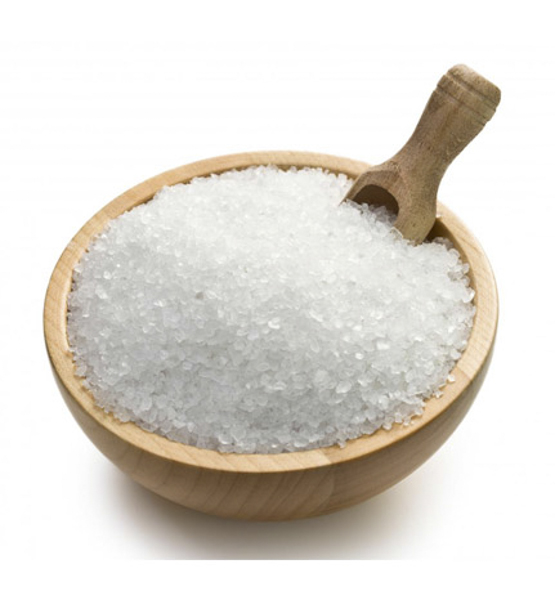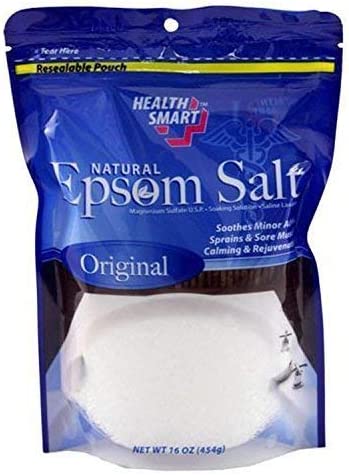
If you’re wondering whether Epsom salt can be used to manage pests, read on. Before I go any further, let me just say that epsom salt is formed of magnesium, sulfur, and water. Therefore, the most crucial part of epsom salt is magnesium, which helps some plants recover from yellowing and can improve plant health. However, those who took the Epsom salt along with me are interested in how to use it. This magnesium sulfate facilitates the mineral absorption of plants. I’ll be providing all of the answers below because of this.
Epsom salt can be used to control pests, and it can deter slugs, snails, beetles, and many other horticultural insects. However, in some instances, regular white salt can also kill these insects, so you wouldn’t use epsom salt in those circumstances. Epsom yeast is used with plants to offer all the nutrients, prevent damage, and enhance the colors of the bloom and foliage.
It was also employed to get rid of cutworms and ants. Check out the complete answer below.
Table of Contents
Epsom Salt for Pest Control
Epsom salt for slugs
Yes, using Epsom salt to repel and control slugs can be effective. For them, it serves as a barrier or fence that they cannot cross. Apply Epsom salt to plant margins and corners as well as garden beds. It has sulfur and magnesium, which are helpful for producing more blooms and better-colored foliage. Slugs are simple to get rid of, and your plants will enjoy these substances because they will provide all the necessary nutrients.
The plants now use epsom salt as a natural pesticide that also gives them nourishment and keeps slugs away. Epsom salt use may be advantageous because slugs only harm plants. Epsom salt contains some components that might harm slugs’ skin, therefore if any slugs crawl into the soil around plants, they will undoubtedly stick to them and their skin irritation could cause them to lose all of their water, killing them.
Many members in our gardening community use epsom salt to repel or kill pests. Dry epsom salt can drive slugs and other pests away while also providing the plant with nutrients that can improve the color of blossoms and making roots feel robust.
It’s a good idea to use epsom salt for pest control to both promote plant development and deter insects.
Does epsom salt kill ants
Epsom salt can help with ants, but if there is a serious infestation, it won’t really get rid of them. Ants mostly come for sugar-type foods, including tea, bread with jam, etc. If you absolutely believe they come from sugar, then wipe the area with detergent or mopping solvent. The remedy that works is using white vinegar rather than epsom salt.
In order to get rid of them, using epsom salt is not an effective method. If you don’t have anything, you can simply spray water on the area—I did it—and if they detect you, they will simply disassemble. Other times, I use sanitizer and occasionally even add regular edible salt to make it effective for a variety of pests. My own particular trick that has served me well. And lucky for me, sanitizer is inexpensive here.
Why does salt kill slugs
Slugs are readily killed by salt because they contain water in their bodies, and salt just removes that water from them. Because of their wet bodies, slugs can’t survive for long without water, which leads to quick death and dehydration. Although it’s heartless, inhumane, and terrible, there are times when you have to do it for your plant in order for it to live longer, always be healthy, and produce foliage that is free of disease.
Epsom salt as pesticide
For specific insects like slugs, beetles, and snails, epsom salt functions as a detergent and insecticide. It is referred to as “Pest & Slug management” and is helpful for safeguarding crops without impairing growth. It has advantages of its own when sprinkled on tomatoes. Epsom salt, 4-5 gallons of water, and one cup are all you need to make a pesticide that works on both plants and gardening pests.
Magnesium can promote considerably healthier plant growth. And for a while, plant-sucking pests will essentially be gone for good.
Epsom salt insect control
Epsom salt can, to some extent, control ants as well as insects like beetles, slugs, and snails. It benefits plant nutrition and soil health at the same time. Epsom salt solutions reduce insects and prevent them from disturbing the plants.
Epsom salt garden pests

Epsom salt for cutworms

Coffee grounds can be sprinkled around the soil if epsom salt didn’t kill the cutworm. The beneficial aspect of coffee is that it includes vital nutrients for plant growth. It also functions as fertilizer and may be useful in supplying enough NPK (nitrogen, phosphorus, and potassium) to the soil to support plant development in general.
Eggshells or the white/brown covering on the eggs can be used as another technique to prevent earthworms and slugs from accessing the soil. The eggshells only need to be crushed, and that’s all. The jagged edges of the shells will force any approaching earthworms or slugs to face them and will also slice any angleworm’s tiny legs, making them useful for defending various plants against snails, slugs, and earthworms.
Will epsom salt kill maggots
There aren’t many facts available about maggots, however you can destroy them with hot water or even salt in larger quantities. To get rid of maggots, you can even use boric acid, which was once used to treat rats, and cayenne pepper.
Does epsom salt kill millipedes
No, epsom salt won’t kill millipedes, but moving them with a broom and putting them in soap water would. Additionally, vacuuming is helpful in getting rid of millipedes. You may also throw them away or use this Wondercide pest control spray to rapidly kill the bug.
Epsom salt may kill millipedes, but apple cider vinegar, which is detoxifying to the body, can be used instead.Overall, if you’re serious about getting rid of millipedes, buy hydrogen peroxide and mix it with 4 cups of water before sprinkling it over the soil. I’m done now.
Using dish soap mixed with water in a 1/2–1/2 ratio as a home treatment can essentially take care of the millipede problem. If you’ve tried using detergent to get rid of them, it won’t work because soapy water can’t possibly be of any use. The best methods for getting rid of millipedes are dish soap solution or apple cider vinegar.
Many people have questioned me about what they can do because millipedes can occasionally be spotted inside the home. Simply put, I advise using a vacuum to clean the house. Insecticides can be used on plants instead. Cleaning up your home will finally allow your plant to breathe again, this time without fear of pest infestation.
Overall, soil contains more pests and diseases than any other environment, but science has also provided us with a wealth of solutions that we can simply implement to solve any issue.
Does epsom salt kill fungus gnats
No, fungus gnats cannot be killed by epsom salt. Yes, it contains magnesium, which has antimicrobial properties and helps lessen foot edema. While some websites falsely claim it can eradicate fungus gnats, there are still benefits like taking an epsom salt bath to alleviate tension. Yes, it does treat fungal infections linked to human wounds rather than plant wounds. It softens your skin so that the doctor’s advised medication can act and shorten the time it takes to receive therapy.
I can’t speak on whether or not epsom salt kills fungus gnats, but applying neem oil is a highly popular method for doing so. This will further repel them for a very long time. According to a website, epsom salt can eliminate fungus gnats, however I don’t believe the claim was well researched. People frequently make assertions without providing any supporting data. Magnesium sulfate in the Epson salt may be mistaken for them, but hydrogen peroxide is what truly destroys the gnats fungus.
By mixing 1/4 hydrogen peroxide and 3/4 water thoroughly, you can kill the gnats fungus on plants without harming them. Now apply the solution by spraying or dousing it.
But choosing the appropriate course of action is essential.
You can use apple cider vinegar instead of hydrogen peroxide to accomplish what I advised you to do (this is nowadays popular for its health benefits and now it can help your plants). In the same manner, mix 1/4 of this cider vinegar with 3/4 of water. It might even be helpful to combine some liquid dish soap.
African violets, spider plants, peace lilies, inch plants, and other plants are frequently impacted by this fruit fly bug.
Does epsom salts kill grass
Epsom salt won’t harm grass because it can give plants the nutrients they need to grow more healthily. However, using too much epsom salt can ruin the beneficial ratio, which is why it’s important to follow the directions.
Is epsom salt good for hostas
Epsom salt is beneficial for hostas and satisfies magnesium deficiencies if your plant soil is lacking in nutrients. Sulfur and magnesium, two of the primary ingredients in epsom salt, are good for plants and will only promote the growth of their foliage and flowers. It also functions as a fertilizer and a pesticide for some garden pests.
